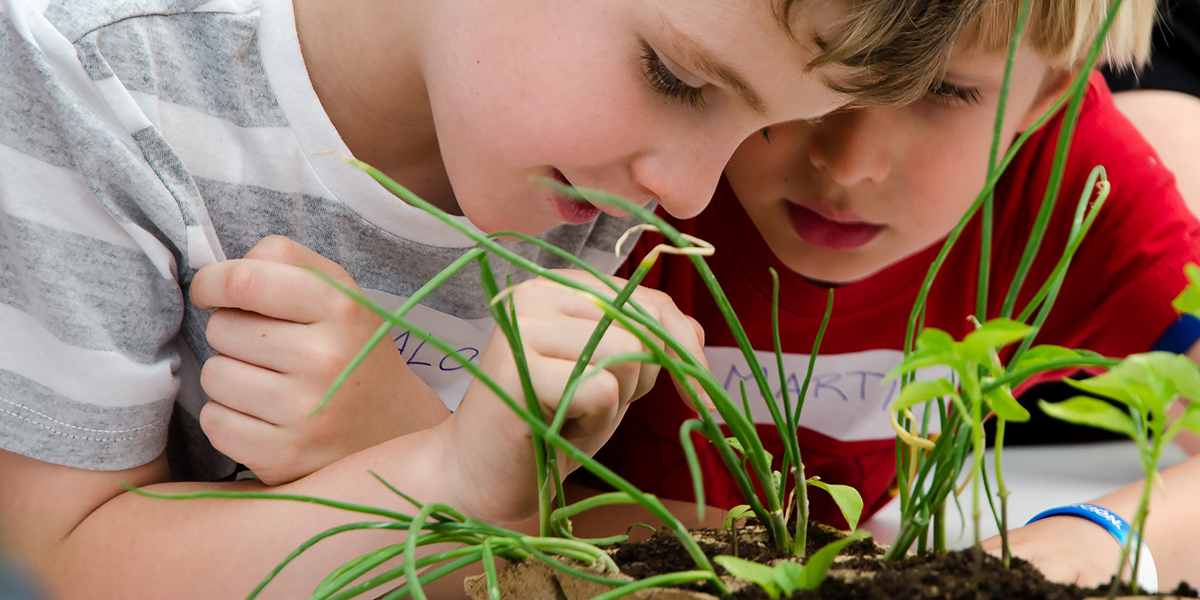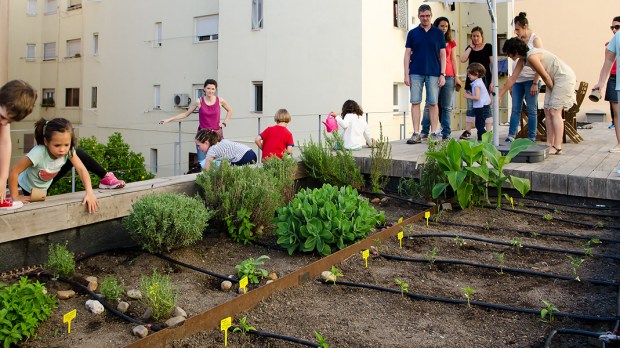Urban gardens bear fruits for body and soul.
See how your fruits and vegetables regain the flavor they had lost with pesticides … and that’s just one of the benefits!
Although urban gardens are not totally new, they’ve been taking Latin America and the world by storm in recent years.

Read more:
How planting my garden has motivated me to give prayer a try
The term “urban garden,” which the FDA also calls “urban agriculture,” refers to small spaces in the city that are used to grow food. They are mainly set up on empty lots, patios, or terraces, and they turn those spaces into community and family orchards.
Is it possible to make one at home?
Yes, of course. It’s best if you have a plot of land, but if not, you can plant on your balcony or terrace in pots or planters according to the space you have. For tips on how to get started, try this starter guide to urban gardens and this step-by-step urban garden tutorial.
For example, you can plant cherry tomatoes, lettuce, onions, rosemary, basil, strawberries, chard, and many more plants depending on how much space you have.

Read more:
The best way to save the planet as a city-dweller
At the global level, there are many examples of changing eating habits through urban gardens. The three that I present below are just a small sample of how important this activity can be.
- At the Professor Jacy de Assis prison (Brazil): Here, prisoners grow their own food in an orchard within the walls. They produce more than 400 boxes of fruits and vegetables each month. Most are for their own consumption and the rest are donated to charity. In addition, they have built a structure to collect rainwater to save water and reduce costs.
- In the British town of Todmordem: This town has completely changed its food supply, becoming an example of local food production for everyone. Under the motto “Incredible Edible” and with the help of the municipality, the townspeople sow and cultivate all type of foods which they supply for free to the whole town. From the city’s fire station or police station to local schools, everyone has their own urban orchard.
- In Uruguay: A growing number of urban and community gardens are turning up in the city and different companies are sponsoring various urban garden initiatives. People are planting gardens on balconies, on terraces of buildings, in nursing homes, in schools, and in places that had fallen into disuse. The idea is to go further and reach hospitals, supermarket parking lots, and other places. Another plan is to take advantage of the organic waste produced in each home, store, or hospital and find a way to use them to make compost (natural fertilizer).
Benefits of an urban garden
It’s educational and healthy: Children and young people who help in the garden can learn about the different kinds of vegetable and fruit crops. It helps above all to encourage people to eat different fresh fruits and vegetables, because they want to taste what they have planted with their own hands. In addition, they will learn that they have to work as a team, to be responsible for the plants. They will understand, value, and respect nature.

Learning to recycle: Food leftovers can be used to make compost. Also, when planting you can choose unconventional items such as wooden crates or some other reusable material.
Eating fresh food without agrochemicals: Pesticides change the characteristic taste of food. When we do our own planting, we can opt for more ecological ways of controlling pests and the food will taste noticeably better.
Higher intake of nutrients: By using freshly harvested fruits and vegetables and preparing them when they are ripe – as opposed to cold stored and artificially ripened produce — we will get all their nutrients, such as vitamins and minerals.
Promotes healthier, homemade food: Having the fruits or vegetables close and being able to harvest them when they are ripe makes us more likely to cook healthy, homemade meals and reduce our reliance on pre-cooked, processed foods.
Saves money. The cost of producing our own vegetables is much lower than the price we find in the supermarket, since supermarket prices have to include the cost of transporting the foods to the market.

Read more:
Endangered pollinators: A threat to the world food supply
Improves mental health: Having or helping in one of these gardens can bring moments of relaxation and serenity in our increasingly busy lifestyles.
It creates bonds of solidarity and belonging: Community gardens bring neighbors together because they have to organize the tasks of the orchard.
Now you know that if you have some free space in your home, you can make your own garden or you can join or create one with your neighbors and soon you can begin to reap all the delicious benefits!
This article was originally published in the Spanish edition of Aleteia and has been translated and/or adapted here for English speaking readers.

